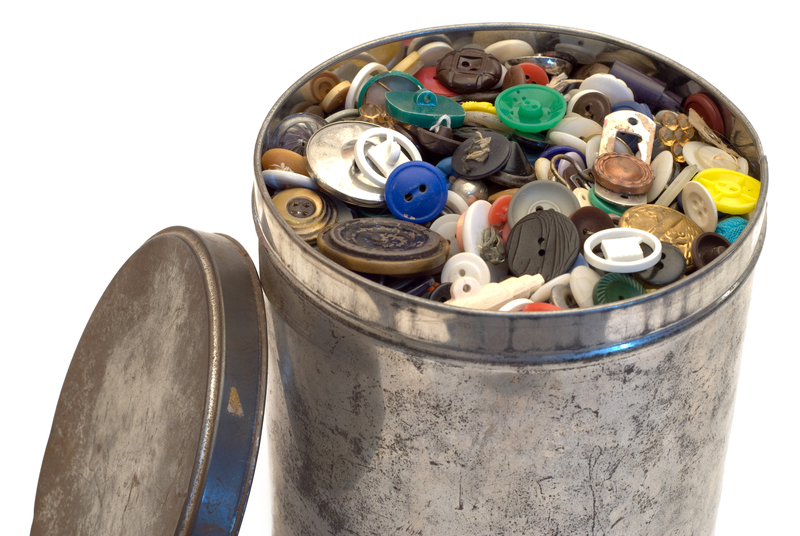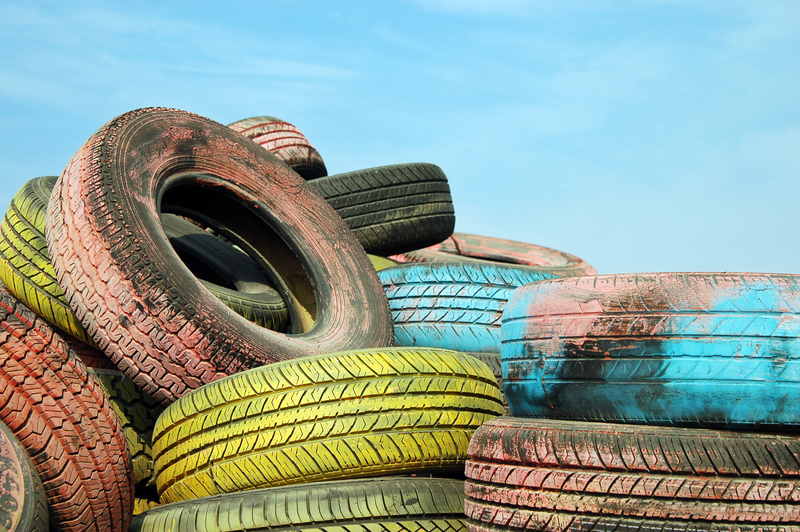Waste Management: From Ancient to Modern Times
Waste management plays a crucial role in sustaining human civilization, public health, and the environment. The techniques and philosophies surrounding waste handling have dramatically evolved over time. In this comprehensive article, we will explore the history of waste management from the dawn of organized societies to our modern, technologically-advanced ecosystems.
The Origins of Waste Management in Ancient Societies
Humans have generated waste for millennia. Early waste management was often informal and heavily dependent on local customs and available technology. In times before mass urbanization, waste produced by small communities largely consisted of organic matter, which easily decomposed. However, as civilizations began to cluster, so did their trash -- necessitating more structured systems.
Primitive Waste Disposal Methods
- Open dumping: The earliest method involved simply leaving waste in open pits or on the outskirts of settlements.
- Burning: Some communities burned refuse to reduce volume and prevent pest infestations.
- Land application: Food waste and animal byproducts were often integrated back into the land to enrich soil fertility.
Much of this ancient waste management would be considered unsanitary by today's standards, but it worked due to the small scale and biodegradable nature of most trash.
Sanitation in Ancient Civilizations
Several civilizations recognized the health risks of unregulated waste and developed innovative solutions:
- Ancient Rome: Famous for its sophisticated sanitation infrastructure, including public latrines, aqueducts, and a complex sewage system called the Cloaca Maxima.
- Indus Valley Civilization: Featured some of the world's first urban drainage systems, underground sewers, and regularly cleaned public baths.
- Ancient Athens: Employed official waste collectors, and laws demanded waste to be dumped a certain distance outside city walls.
Waste management in ancient times laid the foundation for later understanding that improper disposal threatens public health.

The Middle Ages: Trouble Brewing
As populations expanded in Europe and Asia, so did the problems with waste. Squares and streets became clogged with discarded food, animal remains, and household refuse. Disease outbreaks -- most notably the Black Death -- were aggravated by squalid conditions. Urban authorities began to seek more organized ways to handle mounting refuse.
Rudimentary Regulations
- Street cleaning: Cities began employing street sweepers and introducing fines for dumping waste directly onto public streets.
- Night soil removal: "Nightmen" in England and other parts of Europe collected human waste from privies at night for disposal outside town.
- Early landfills: Some cities experimented with designated rubbish pits and controlled dumping areas, an early precursor to modern landfills.
Despite these efforts, medieval waste management was often ineffective, as urban sprawl outpaced public infrastructure development.
Industrial Revolution: A Turning Point in Waste Disposal
The 18th and 19th centuries sparked vast industrialization, ushering in a new era of urbanization and consumerism. This period also introduced new, non-biodegradable materials -- making waste disposal a complex issue.
The Rise of Municipal Waste Collection
With city populations ballooning, litter, ash, and excrement piled up, causing environmental pollution and health crises. In response:
- Public health reforms: Outbreaks of cholera and typhoid led to sanitation movements and stricter waste regulations.
- Municipal waste services: London introduced the first organized municipal refuse collection in the mid-19th century, requiring households to store ashes (from fireplaces) in designated containers for weekly pickup.
- First incinerators: Known as "destructors," these facilities in England began burning waste to reduce landfill pressure.
The concept of government responsibility for urban waste management emerged, setting a new precedent worldwide.
Modern Waste Management: Innovations and Challenges
In the 20th century, waste streams became even more diverse and toxic -- think plastics, electronics, and hazardous chemicals. Meanwhile, growing environmental awareness and legislation spurred innovative systems and technologies for handling waste materials.
Key Elements of Contemporary Waste Management
- Sanitary landfills: Modern landfills use liners, leachate collection, and gas extraction to minimize environmental harm.
- Recycling: The recycling movement, starting in the 1970s, reintroduced the idea of resource recovery, targeting paper, metals, glass, and plastics.
- Composting: Organic waste is transformed into nutrient-rich compost for agriculture and landscaping.
- Waste-to-energy: High-temperature incinerators and anaerobic digesters convert trash into electricity or fuel.
- Hazardous waste management: Strict regulations govern the disposal of chemicals, electronics, and medical waste to protect both people and the environment.
Integrated Waste Management systems today prioritize minimizing landfill use ("landfill diversion"), pollution reduction, and maximizing resource reuse and recovery.
Modern Waste Management Technologies
- Smart bins: Equipped with sensors to monitor fill levels, optimize collection routes, and reduce emissions.
- Mechanical-biological treatment: Combines mechanical sorting and biological processes to recover recyclables and stabilize residual waste.
- Robotics and AI: Advanced sorting at recycling plants using artificial intelligence boosts the recovery rate for valuable materials.
- Plasma gasification: Uses extreme heat to break down waste into syngas and slag, reclaiming energy while minimizing emissions.
Each new development aims to close the loop in the waste lifecycle, inching closer to the ideal of a circular economy.
Global Perspectives on Waste Management Systems
Different countries have adopted varying approaches to waste governance:
- Europe: Nations like Sweden and Germany boast high recycling and energy recovery rates, with strong producer responsibility laws.
- Japan: Renowned for its strict separation of waste streams and high-tech waste-to-energy plants.
- Developing countries: Often struggle with limited infrastructure and funding, leading to informal waste picking economies but also innovative community-led solutions.
The disparity in global waste management practices highlights the need for knowledge sharing, investment, and technology transfer to address urbanization and population growth.
The Rising Problem of Plastic Waste
Among the most pressing environmental challenges is plastic waste management. Plastic is durable, inexpensive, and used globally -- resulting in massive generation and harsh consequences for oceans, wildlife, and human health. Modern waste policies now focus on:
- Reducing single-use plastics via bans and taxes.
- Extended Producer Responsibility (EPR): Holding manufacturers accountable for the entire lifecycle of their products and packaging.
- Investment in recycling innovation, such as chemical recycling to break down plastics at a molecular level.
Communities worldwide are embracing a "zero waste" philosophy to combat plastic pollution and encourage more sustainable consumption habits.

The Future of Waste Management: Towards a Circular Economy
Looking ahead, waste management will continue to be defined by advances in science, shifting societal values, and tightening environmental regulations. The circular economy model -- where products and materials are reused, repaired, and recycled as much as possible -- is becoming the gold standard. This shift requires an integrated approach that moves beyond simple disposal and incorporates:
- Design for environment: Products designed for easy disassembly, repair, and recycling.
- Material innovation: Development of biodegradable or easily recyclable materials.
- Policy alignment: Harmonizing regulations concerning waste reduction, producer responsibility, and consumer incentives.
- Public education: Programs to change behaviors and raise awareness about waste reduction and sorting.
Key Trends Poised to Shape the Industry
- Digitalization: Data-driven logistics, smart bins, and blockchain tracking for transparency and efficiency.
- Community engagement: Empowering local communities to manage resources, promote composting, and drive change.
- Urban mining: Extracting valuable metals and minerals from existing waste streams, reducing the need for new resource extraction.
The next generation of waste management is about closing loops, cutting emissions, and building resilient, resource-efficient cities worldwide.
Conclusion: Lessons from the Past, Innovations for the Future
From ancient times to the present day, waste management has evolved from simple household disposal to advanced, multi-layered systems involving technology, regulation, and public participation. Throughout this journey, societies have learned hard lessons about the link between waste, health, and the environment. Modern waste management marries scientific innovation with environmental stewardship and social responsibility - but the challenge is far from over.
To create a healthier, cleaner, and more sustainable future, we must continue to innovate, invest, and educate. By drawing wisdom from the past and leveraging cutting-edge waste management solutions, we can transform trash from a liability into a resource, ensuring prosperity and wellbeing for generations to come.
Whether you are a policy maker, urban planner, business owner, or concerned citizen, your actions matter. Every step towards responsible waste management and consumption is a stride towards a better world.
Key Takeaways:
- Waste management has been integral to human societies throughout history, evolving alongside technology and social development.
- Modern systems require cooperation across government, industry, and consumers to maximize recycling, energy recovery, and minimize pollution.
- Future waste management relies on innovation, regulation, and community engagement to realize a truly circular economy.
Stay informed, act responsibly, and participate in the global movement for smarter waste management -- the planet will thank you.